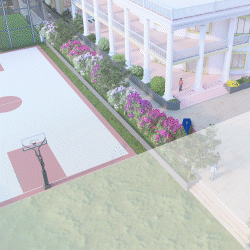"Hero of upheaval" who lost the title
We use Google Cloud Translation Services. Google requires we provide the following disclaimer relating to use of this service:
This service may contain translations powered by Google. Google disclaims all warranties related to the translations, expressed or implied, including any warranties of accuracy, reliability, and any implied warranties of merchantability, fitness for a particular purpose, and noninfringement.


The "defending champion" of the national upheaval competition, Pushpa Kamal Dahal, was "knocked out" in the first round in the last competition. Dahal, unconcerned by a steadily declining public support, malnourished organization and untrustworthy image, was busy celebrating. His title was taken away by the 'Pratyakramana' that happened at that time.



It is not possible to say which destination the country will take with the new political course that has been laid now. However, there is definitely room for doubt whether the country has been freed from the sad serial series of the leaders ruling over the people again and again.
What was the main aim of Dahal, who led the armed conflict for 10 years, let him know. But what he said to the people, that is not going to happen. In order to transform the country, he led the people to war, 17 thousand citizens were sacrificed. However, after drowning in the quagmire of state power, the political trust towards him has not only eroded rapidly, Maoist, who was a bully in the first election, has now become a Lilliput.
, the Maoists who got about 31 percent of the votes in the first Constituent Assembly dropped to 17 percent in the second Constituent Assembly. This party got 13 percent votes in the first election after the promulgation of the constitution and 11 percent votes in the last election. Freed from the eagerness and energy to self-reflect on the decline of the party, Dahal has limited his identity as a permanent player in the power game.
Neither aspiration for public support nor desire to build an organization, neither accountability to the past nor commitment to the future. Dahal, who is doing politics without shape and form, did not seem to respect the 'almost last chance' he got in his own language. Instead, it appeared that he was under the illusion that power was his hostage. There are also some illustrative cases. Dahal, who left the UML two months after the last election, said in a public program on February 21, the day he joined the Congress after a year, "Today is a special day." A day of new upheaval. There will be upheaval in the country until I die.'
Nothing could have been more terrible than this joke made by the Prime Minister of a country that is thirsty for good governance, stability and prosperity. Aiming at the more sympathetic Congress, he also said, 'If the reactionaries try to use me, I can kick them out at any time.' Harmful' was extremely apolitical language. However, as Prime Minister, Dahal repeatedly showed such frenzy that he did not deserve.
The main opposition Congress, which has been demanding an inquiry into the co-operative fraud, had blocked Parliament last May. The blocking of parliament was not the first incident, nor perhaps the last. More indecent events have been shown by others in the parliament, and the most horrific scene was performed by the Maoists. However, Dahal, who reached the rostrum to propose a vote of confidence amid the obstruction of the Congress on June 7 this year, said, "Whatever you have done today, the price will be very high for the Nepali Congress. The activity you have shown today has been established as a stigma in the history of Nepal. Parliamentary language is used to address parliamentary problems. However, from the language and demeanor used by Dahal without introspection, it seemed that she belongs to the country's quality-marked examiner who has the right to determine the future by evaluating other parties.
coalitions are an accepted practice in parliamentary politics. A large party leading the government on the basis of public opinion is a respect for the public opinion, while a small party buying a big position is exploiting the system. Even if any leader gets such an opportunity, it should be taken as a rare challenge, but Dahal is seen to be trying to take advantage of this as a weakness of the system and the constraints of the big party. Especially the shrinking of organization and parliamentary seats is a matter of concern and review for any party in a democracy. However, while instructing the workers not to worry about it, Dahal publicly said on June 8, "There is no need to worry about the fact that there are few seats in the Parliament." There is a magic number. That magic will be arranged in many ways. In a parliamentary democracy, not having to worry about the number of seats means that you don't have to worry about the trust of the people. If you don't worry about public trust, you don't have to worry about public service delivery, good governance and accountability. What Dahal needs to understand is that power play without concern for public opinion is not magic for democracy, it is black magic. Such tendency should be discouraged.
The practice of coalition after the 1996 elections is considered a blot on the parliamentary history of India. However, in the meantime liberal and decent leaders like IK Gujral and HD Deve Gowda became the Prime Minister. However, they did not have impressive numbers for that. Gujral and Deve Gowda of the Janata Dal, which got a total of 46 seats in the 543-seat Lok Sabha, were prime ministers for about a year each. That period is therefore interpreted as an unpleasant hiatus in Indian politics. At about the same time, Lokendra Bahadur Chand and Surya Bahadur Thapa of RPP, who won 19 seats in Nepal, became the Prime Minister by riding on the shoulders of UML and Congress in turn. At that time, when they reached power and strength, they also felt 'magic'. Now, when reviewing the ugly example of parliamentary politics, the tenure of Chand and Thapa is considered a mockery of democracy. No doubt, Dahal will be reviewed in the future just like Chand and Thapa are being reviewed today.
Dahal did not get a chance. He has been prime minister three times since entering mainstream politics and has been at the center of power continuously for 18 years. However, due to the lack of sensitivity, both the commissions, which were arranged to provide justice or reconciliation to the families of the citizens who were made missing during the 10-year war and who lost their lives, are currently at a standstill. He did not show readiness to address the sensitive issue where not only the security apparatus of the state, but the leaders and workers of his own party will be accused. Instead, hanging the banner of 'Transitional Justice churning' outside, they were busy negotiating the power alliance in Kothachota of Baluwatar. To break the story, it is only 18 months since Dahal ran the government after all kinds of upheavals. However, the time spent by the country's prime minister is not only his private time. The Prime Minister's day-to-day role determines the direction and condition of the education, health, employment and business of 30 million Nepalis. So every day is an era. However, what is a matter of concern is that the Dahal government, which brought a budget of 17 trillion 51 billion a year ago, allocated only 3 trillion 2 billion for capital. Moreover, with only 10 days of the financial year remaining, only 48 percent has been spent. So far, 12 trillion 63 billion has been spent, but only 1 trillion 46 billion has been spent on development. Instead of having a serious discussion with policy makers to reflect on such matters, Prime Minister Dahal seems to be embarking on a venture of ribbon-cuttings, launches, speeches and his own hype on all platforms. If some time was spent on what the world is saying, there could have been improvements in budget mobilization and infrastructure development.
Another story, last wednesday the result of SEE is out. Out of 464,000 children appearing in the examination, 242,000 have been declared ineligible for admission to class 11. 52 percent may seem like a blank number to the government. However, two and a half lakh students being ineligible is a national disaster. Looking at last year's calculations, knowing that students are weak in writing and rely on practicals to pass, the government changed the evaluation criteria and made more than half of them fail. In the meantime, there is a shortage of 56,000 teacher posts in public schools, according to government data. The days when the Prime Minister did not think for a day or even an hour to fill the teacher vacancies, improve the teaching system and ensure a beautiful future for the children are really exciting.
You don't have to go far to see how chaotic the face of the government is, just turn around the ring road of the stranded capital. Likewise, the sighs of tens of thousands of commuters on the Butwal-Narayangadh and Muglin-Pokhara roads are evaluating the government every day, every moment. Not only the abandoned bridges and dug-up roads, but also the increasing loan installments of the regional international airports of Pokhara and Bhairahawa, which were abandoned even after construction, confirmed that if the prime minister did not wake up, he was in a deep sleep of 'satisfaction'.
, Prime Minister Dahal has suddenly woken up after the country's two main parties, Congress and UML, signed an agreement to form a coalition government as per the rare practice. Dahal, who became prime minister with just 11 percent of the popular vote, is now left with no choice as the parties that narrowed to almost two-thirds have consolidated. The Maoist functionary meeting has also objected to the fact that the main parties have raised the agenda of constitutional amendment. With the conclusion that the country is no longer in the mood to be ruled by a government of 'jugad', the debate on constitutional reforms for political stability has been brought forward.
However, there is no doubt that amending the constitution is more complex and sensitive than writing the constitution. Moreover, inclusiveness and federalism are the soul of the present constitution against which every citizen of the country, like Maoists, has the right to protest against any extrajudicial interference. However, it is necessary for Dahal to be clear that the exercise of that right and responsibility is to be done through the streets and parliament, not by sitting in the sand.
For any political party, the opposition is as vital as the ruling party. In the meantime, Dahal will be properly evaluated as an opponent if people's issues are raised instead of self-congratulatory. For this, he should assume the role of a responsible opponent, not a power grab. Because the problems of service delivery and good governance will not end automatically if Congress and UML come together. The stronger the government, the more intense the questions.
 प्रकाशित : असार १९, २०८१ ०७:३५
प्रकाशित : असार १९, २०८१ ०७:३५

 २६.१२°C काठमाडौं
२६.१२°C काठमाडौं


















